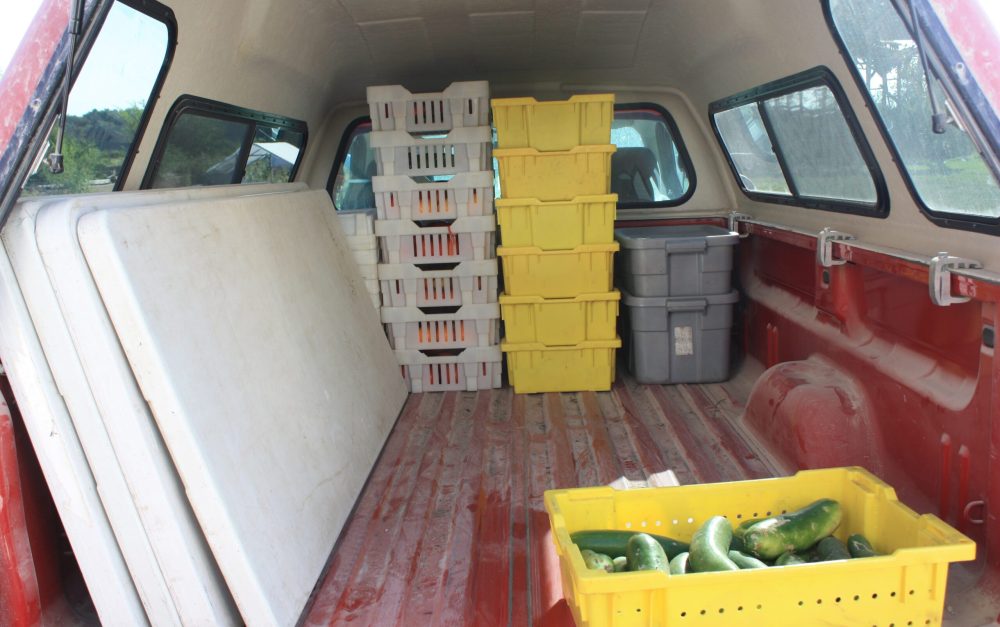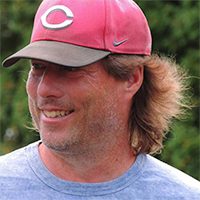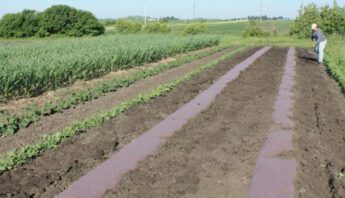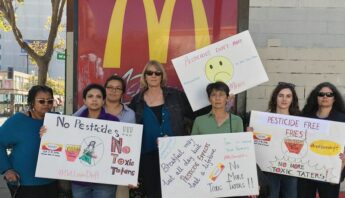As I add another year of growing food for others into the books, I find myself doing what so many people do in late December — reflecting on what has been and considering what may be. It’s tempting to fall prey to the belief that this is the moment that everything will change, making it a key transitional event in the life of our farm. Except, I’ve realized that good stewardship recognizes that a farm is always in transition, from one season to the next, from week to week, from task to task.
A farm that implements the principles of agroecology is one that embraces complexity. That complexity often comes in the form of transitions, moving from planting to cultivation to harvest. These farms are prepared to work with whatever the land and the weather brings to them. The people that do this work are strong and capable, and they achieve a great deal. But they do all of this despite, not because of, our current agriculture and food systems.
Broken food and farming systems
Our current food and farming systems have come about due to a thirst for control, simplicity and money. To be successful, a farm always has to be seeking “more” and the concept of “enough” is considered to be no better than failure. Bigger is better. Achieving the highest crop yields is necessary, regardless of the non-monetary costs. As long as the people who happen to be at the top of the ladder keep increasing their sphere of influence and their assets, these systems are considered successful.
The bigger our farms get, and the more they embrace larger fields with single crops, the harder it is to get away from a reliance on pesticides. As these farms increase in size, the harder it becomes for new growers to access land and enter the profession. The laws and the regulations continue to skew towards the preferences of these large, corporate farms and the industry that promotes them. The power in food and farming is definitely not in favor of a complex and diverse agriculture.
Meanwhile, on a small-scale farm
Our small-scale farm has been among those who continue to embrace agroecology despite the pressures of a system that would prefer we “get big or get out.” We have been scaling back out of necessity since I started working with PAN, but we still play a part in providing food to our local community.
I wanted to give you a partial picture of what providing food to our local community entails. But, before I do, I want to assure you that we do love doing this – but we are also glad we don’t do it as much as we used to. The time was right for us to scale back and we’re just trying to find the right scale for where we are in our lives now. We are trying to determine what is “enough” instead of getting caught in trying to always acquire and achieve more.
One day in August, we delivered 32 dozen eggs, 35 pounds of tomatoes, 35 pounds of green beans and a bushel of onions. We also delivered smaller amounts of zucchini, summer squash, cucumbers, peppers and lettuce. A couple of individuals were thrilled to get some HUGE zucchini, while others were happy to receive zucchini that were only six inches long. Another person walked to the delivery point and found they could not carry it home, so we dropped it off at their home when all the other pickups were done.
While orders “only” came from 24 individual families, there was certainly effort expended to promote sales, manage orders, process those orders and deliver them. On the same day, we worked with a couple of young people to harvest green beans, we performed all of our farm chores and tasks, and we both fulfilled our duties for our off-farm jobs.
Now imagine this. When I worked on the farm full-time we offered a CSA (Community Supported Agriculture) farm share. We had as many as 120 members getting a share every week. We typically offered anywhere from 7 to 15 different items in a share every week — which meant we might deliver 120 pounds of green beans, 240 pounds of tomatoes, 240 heads of lettuce and other produce in similar amounts each week.
A small-scale, diversified farm can fill a farmer’s day. Now imagine adding in the difficulties a broken food and agriculture system presents for this type of farm. Concerns brought about by pesticide drift, the struggle for land access, and the pressures of regulations built for farms one hundred times our size are added to the burden.
Promoting a transition to agroecology in 2024
I know many of you who will read this patronize local growers of food and I salute you and have much gratitude for you. But sometimes patronage is not enough. Sometimes, it is important that we take the next step to understanding what it takes to grow good food on a small-scale with sustainable practices. And, once we have that understanding, we need to stand with current growers and those who want to enter the profession to change the policies that actively work to remove us from the food and farming system.
Perhaps you are also a steward who implements the principles of agroecology. I recognize the value in your efforts and I understand that it can be hard, but rewarding, work. And this is one of the reasons we do our advocacy work at PAN. We do this because the people who work so hard to raise food in the best ways possible for their communities shouldn’t also have to expend the energy or time to fight alone against a system that is stacked against them.
As a farmer and steward, I appreciate the work each of you has done on behalf of the small-scale, diversified growers who strive to be stewards of the land and their communities. As a member of the PAN community, I look forward to a new year of promoting a real and lasting transition of our farm and food systems towards agroecology.








